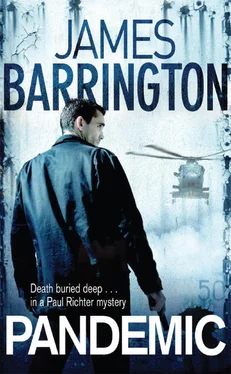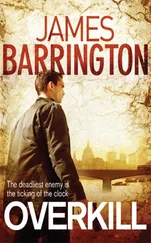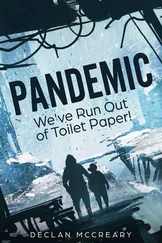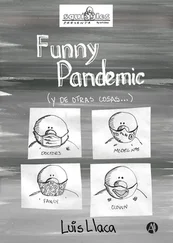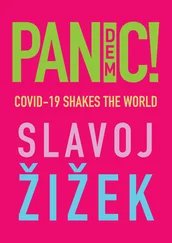‘I’m taking Stein’s briefcase back with me. I’ll get our guys to see if there’s anything useful on his laptop, and then I’m going to keep it; it’s time I had a computer of my own. And he had a better mobile phone than the one I use back in the UK. Let’s call it the spoils of war.’
British Airways 747, direct Baltimore–London Heathrow, mid-Atlantic
The in-flight movie was crap, Richter knew, because he’d already seen it in the Wardroom of the Invincible , what seemed like half a lifetime ago. The in-flight meal hadn’t been a lot better – pretty much the only edible part being the roll and butter – and as soon as the grumpy stewardess, or cabin staff operative or hostess or whatever the hell they were being called this month, had taken away his tray, Richter had tried to get some sleep.
That hadn’t worked either, and after fidgeting around for thirty minutes trying to get comfortable – a nearly impossible task in the plane’s economy section – he’d given up trying and hauled Stein’s briefcase down from the overhead locker and opened it up. He’d been vaguely planning to have a fiddle with the dead man’s laptop – Richter wasn’t quite as computer illiterate as he usually made out – but when he lifted the lid of the briefcase something else caught his attention.
Sticking out of one of the narrow document pockets was a piece of paper. Richter pulled it out, unfolded it and found it was actually six sheets of thin paper stapled together. At the top of the first sheet was the unmistakable dark blue CIA seal, the bald eagle surmounting the white shield with the sixteen-pointed red compass, and the classification – Ultra Secret – stamped in red at the top and bottom of every page, supplemented by a caveat: ‘CAIP EYES ONLY’.
He knew immediately, even before reading to the bottom of the first page, exactly what this document was, and where it had come from. It was the executive summary of the aims, conduct and procedures of Operation CAIP. Krywald or Stein had obviously removed it from the file, and Richter could guess why.
It was dynamite, with enough explosive force to blow the Central Intelligence Agency into oblivion, and the only living soul who now knew it existed was Paul Richter.
Wednesday
Hammersmith, London
Richard Simpson turned the pages slowly, rereading the document for the third time. Then he dropped it onto his desk and stared across at Richter.
‘Where did you get it?’ he asked.
‘I didn’t get it from anywhere, really,’ Richter said. ‘I liberated a briefcase from this CIA agent named Richard Stein, because it contained his laptop computer and it was convenient for carrying it. I wasn’t watching the bloody awful movie on the long-haul back from Baltimore, so I decided to have a play with the laptop instead. When I opened up the briefcase, I saw this bit of paper sticking out of a document pouch. That’s it really.’
Simpson looked down and prodded the sheaf of pages a couple of times in an experimental manner. ‘So what do you expect me to do with it?’ he demanded.
‘What worries me,’ Richter said, ‘and has done since the moment Nicholson finally told us what CAIP was all about, was what the CIA will do with the evidence. Even John Westwood looked totally stunned at the implications, and I would be prepared to lay money there’ll be a powerful faction within the Company that will just want this buried.’
‘They could be right,’ Simpson said. ‘Having something like this made public would do immeasurable damage to the American Government, and I don’t really see what good it would do to anybody now. AIDS is with us and that’s a fact. Whether or not somebody created it, or if it just crawled out of the African rain forest somewhere, seems to me to have become largely irrelevant.’
‘But that’s not the point,’ Richter’s voice rose. ‘If the CIA was behind this, then the Company should accept some kind of responsibility. I’m not talking about a public blood-letting – I agree that wouldn’t help anyone – but some kind of financial reparation wouldn’t go amiss. Maybe they could subsidize the cost of the AIDS drugs being used these days. A lot of victims of the disease can’t receive treatment simply because they can’t afford to pay for it.’
‘You seem to know a lot about the subject,’ Simpson commented.
‘I’ve done some research since I got back.’
‘OK, but you still haven’t answered my question. What do you want me to do about it?’
‘I want you to let the CIA know, through Six if necessary, that we have this document – and that we’re prepared to go public with it if the CIA doesn’t admit responsibility for CAIP, at least privately, and doesn’t offer some form of compensation to those suffering from the horrific disease it helped create.’
There was a long silence in the office. Simpson stared at Richter, then dropped his eyes to the six stapled pages lying on the desk in front of him. When he looked up again, he slowly shook his head.
‘I really don’t think I can do that,’ he said. ‘I hear what you say, but on balance I think it’s probably better for everyone if we just forget about this and preserve the status quo. In fact,’ he added, ‘I think it’s better if this document never sees the light of day – ever.’
Before Richter could react, Simpson dropped the pages into the mouth of the large document shredder beside his desk and pressed the button. There was a brief ripping sound, then just the whir of the cutting blades. Simpson reached down again and pressed the switch: silence fell.
‘So that’s it, is it?’ Richter demanded. He hadn’t even attempted to move as Simpson destroyed the vital document.
‘Yes, I think so.’ Simpson stood up, rubbing his hands together. ‘Unless there’s anything else you want to add.’
Richter got up too, and pushed his chair back, then walked slowly across to the door. He reached out for the handle and then turned back to face Simpson. ‘Yes, I did quite a lot of research on AIDS yesterday,’ he said, ‘but that wasn’t the only thing I was investigating.’
‘Oh?’ Simpson sounded profoundly disinterested. ‘What else were you looking at?’
Richter smiled slowly and glanced down at Simpson’s document shredder. ‘Colour photocopiers,’ he said. ‘It’s simply amazing what results you can get from colour photocopiers these days.’
‘The amount of American philanthropy aimed at AIDS is unparalleled and the US funds nearly 30% of the Global Fund’s $4.8 billion budget. President Bush recently pledged $15 billion to fight HIV/AIDS over the next five years.’
Extract from an article by Eric Bovim and posted at www.TechCentralStation.com
Though what you’ve just read is a novel, with all the usual disclaimers about people living and dead, the above quotation is genuine, as is the analysis which follows.
AIDS: An analysis
I have had to take one slight liberty in writing this novel: I have no idea how the human body would react if exposed to an unadulterated ‘mother strain’ of the AIDS virus, or even if such a thing exists. The physical effects I’ve described in this book are violent and dramatic, but are by no means unreal. Victims of infection by either a filovirus (Ebola and Marburg) or an arenavirus (Lassa) would suffer very much the same symptoms as those I’ve described. The only difference would be the timescale, with Ebola Zaïre killing its victims the quickest, usually in about a week to ten days.
As I’ve said, this book is a novel, but what follows here is fact, not fiction. It should frighten you – it terrifies me.
Читать дальше
